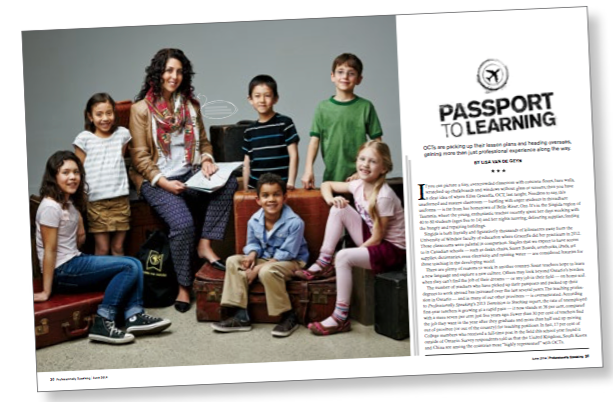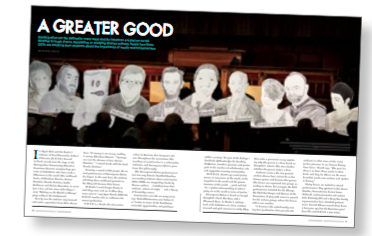Share this page
Professionally Speaking welcomes letters and articles on topics of interest to teachers. We reserve the right to edit letters for length and to conform to our publication style. To be considered for publication, letters must provide the writer’s daytime phone number and registration number. Address letters to: The Editor, Professionally Speaking at ps@oct.ca or 101 Bloor St. W., Toronto, ON M5S 0A1.
Teachers who work overseas often face many obstacles and challenges that teachers at home don’t: teaching in a foreign language, teaching children with English as a second language, adjusting to a new environment, and facing new attitudes and cultural norms. Yet, when teachers apply for jobs in Canada, their experience overseas is not taken into account equal to their Canadian counterparts. Teachers who have worked overseas have had to create lesson plans, be accountable to the administration, parents and students, participate in school-wide activities, write report cards, hold teacher-parent conferences, handle behavioural issues, teach for all levels within the classroom, and participate in extracurricular activities.
The reason we go overseas is to gain full-time experience, which is difficult [for new teachers] to obtain in Canada. While overseas, we gain experience, [learn about] various cultures and experience different environments. Canada is a multicultural country — we see that in the classroom — and teachers who taught overseas have first-hand experience in understanding students from different backgrounds.
So why not let our overseas experience be seen on par with our Canada-based colleagues?
—Susanna Wallis, OCT, teaches kindergarten at Sinarmas World Academy, an international school in Bumi Serpong Dami City in Indonesia.


Thank you for the excellent article, “A Greater Good,” by Helen Dolik. From storytelling to researching key players, I appreciated reading about the different strategies used to teach about social justice.
—Lise Presseault, OCT, is a former Ontario College of Teachers senior accreditation program officer.

While reading — and enjoying — the September issue of Professionally Speaking, I noticed a repeated and glaring omission: several articles highlight the important use of contemporary and diverse texts, technology and learning spaces, yet none of them mentioned the school library, the learning commons, or the teaching practice of partnering with a teacher-librarian to find, acquire and provide access to all of these necessary learning tools and spaces.
I encourage the staff, contributors and readers of Professionally Speaking to think about how teachers from all regions of our province find, purchase and make available to students reading and learning materials, technology and spaces that reflect the important teaching and learning goals covered in the September issue.
I also encourage teachers and school administrators to visit the Ontario Library Association’s (OSA) (oct-oeeo.ca/1WdTRuh) online resources, where you can find Together for Learning written by the Ontario School Library Association, as well as Learning Commons (oct-oeeo.ca/1KANomv), a website companion to the book The New Learning Commons Where Learners Win! for more about this contemporary approach to ensuring schools have access to all of these vital resources, including teacher-librarians and library technicians.
—Peggy Lunn, OCT, a former secondary classroom teacher and teacher-librarian, is now the librarian at the Teacher Resource Centre at Queen’s University in Kingston.